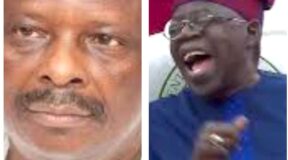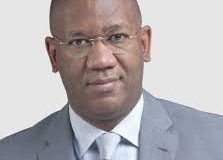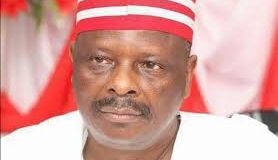Going by plans to make necessary adjustments in the Russia’s constitution, a European country located in Eastern Europe with a vast expanse of territory that stretches across Northern Asia, Vladimir Vladimirovich Putin, President of Russia, has set the stage that would enable him stay in office till 2036 by which time he would be 83 years old.
Putin is a Russian politician who has served as the president of Russia since 2012. He previously held the position from 2000 until 2008.
Russia’s constitution came into force on December 25, 1993. At the moment of its official publication, it abolished the Soviet system of government. The current Constitution is the second most long-lived in the history of Russia, behind the Constitution of 1936.
No doubt, Putin likes to surprise. Even more, he likes
to confuse. As a former KGB officer, he is comfortable operating in fog and
obfuscation, particularly when twisting the law—or even hatching a political
plot. This is essentially what Mr Putin has been doing for the two months since
he announced constitutional changes designed to keep himself in power after
2024. The current constitution says he must leave office then. As he indicated
on March 10th, he has no intention of doing so.
Russians could be forgiven for feeling confused. On March 6th Mr Putin told
them that he would not repeat the experience of the Soviet leaders who died in
office. “I like my job, but to retain the power I have, [I would have] to agree
to some scheme that would be unacceptable for the country or…destroy it.” But
four days later he did the opposite, telling the Duma (parliament) that he is
willing to reset the clock on presidential term-limits and may stand again in
2024. Two more six-year terms could thus keep Mr Putin—if he stands and wins
re-election—in the presidency until 2036, when he will be 83.
Mr Putin has pondered and probably rejected various methods of retaining power:
merging Russia with Belarus and so presiding over a new country; presiding over
an empowered supreme state council; or becoming prime minister in a new
parliamentary system. When confronted with a similar difficulty in 2008, he
simply swapped jobs with Dmitry Medvedev, then prime minister. This time, he
appears to have chosen the crudest but perhaps most certain method—changing the
constitution and remaining president.
His statements have been as murky as the amendments to the constitution, which
are confusing and contradict some other articles. He said at first that they
would strengthen the powers of the parliament and the regions. In fact, the
amendments grant the president near-absolute power, further reduce the
authority of elected mayors and scrap the primacy of international norms over
Russian laws. The power-grab is shrouded in the language of God, ancestral
traditions, heterosexual families and sacred victory in the second world war (the
75th anniversary of which Russia will mark on May 9th).
Yet, for such a momentous event, Mr Putin’s gambit performed before the Duma,
lacked panache and drama. The show was contrived and stale. In a stylistic
throw-back to deadly-dull Communist Party congresses, Valentina Tereshkova, an
MP and former Soviet cosmonaut, said there was no point in trying to erect
complicated political constructions. It would be much better to ask Vladimir
Vladimirovich to stay as president for the good of the country.
On cue, the Duma applauded, and overwhelmingly voted for the amendments. Mr
Putin is expected to sign them on March 18th, the sixth anniversary of the
illegal annexation of Crimea. Taking the floor, Mr Putin laid out an extensive,
self-serving definition of his role. “The president is the guarantor of the
constitution,” he said, “or, simply put, the guarantor of the country’s
security, domestic stability and…evolutionary development.” Evolutionary,
because “we have had enough revolutions.” He invoked foreign and domestic
enemies: “They are waiting for us to make a mistake or to slip up, losing our
bearings or, worse still, get bogged down in internal dissent, which is
sometimes fanned, fuelled and even financed from abroad.”
Although it would be quite wrong simply to remove term limits, he said
casuistically, “lifting restrictions against…any citizen, including the
current president, from taking part in an election in the future” was quite a
different matter. Naturally, the changes to the constitution would have to be
approved by the Constitutional Court, which he controls, as well as by the
Russian people.
Their assent is scheduled for another anniversary: Lenin’s birthday, on April
22nd. There will be an “all-people vote”, which appears to be neither a referendum
nor an election, but rather a vague display of support with no basis in Russian
law, probably involving some televised spectacle. Its purpose, though, is to
give Mr Putin’s ploy an air of spurious legality. And just in case anyone who
disapproves of his scheme should think of protesting, Moscow’s city authorities
promptly banned any gathering of more than 5,000 people, citing the coronavirus
outbreak, at least until April 10th.
Mr Putin offered some consolation to the many Russians who are sick and tired
of him, promising: “I have no doubt that the day will come when the supreme,
presidential power in Russia will not be so personalised.” He said nothing
about when that day may come. It may not be within his lifetime.







